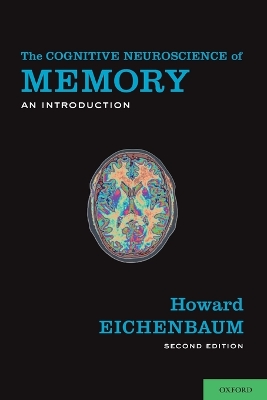This clear and accessible textbook introduces the brain's remarkable capacity for memory. The text was developed for undergraduate and beginning graduate students, but it will also be of use to cognitive scientists, biologists, and psychologists who seek an introduction to biological investigations of memory. Like the first edition, this fully-updated second edition begins with a history of memory research, starting with a 'Golden Era' at the turn of the 20th century, and progressing to our current understanding of the neurobiology of memory. Subsequent sections of the book discuss the cellular basis of memory, amnesia in humans and animals, the physiology of memory, declarative, procedural, and emotional memory systems, memory consolidation, and the control of memory by the prefrontal cortex.
The book is organized into four sections, which highlight the major themes of the text. The first theme is connection, which considers how memory is fundamentally based on alterations in the connectivity of neurons. This section of the book covers the most well studied models of cellular mechanisms of neural plasticity that may underlie memory. The second theme is cognition, which involves fundamental issues in the psychological structure of memory. This section of the book considers the competition among views on the nature of cognitive processes that underlie memory, and tells how the controversy was eventually resolved. The third theme is compartmentalization, which is akin to the classic problem of memory localization. However, unlike localization, the notion of "compartments" is intended to avoid the notion that particular memories are pigeon-holed into specific loci, and instead emphasize that different forms of memory are accomplished by distinct modules or brain systems. This section of the book surveys the evidence for multiple memory systems, and outlines how they are mediated by different brain structures and systems. The fourth and final theme is consolidation, the process by which memories are transformed from a labile trace into a permanent store.
This text encapsulates the major concepts in the field of memory research, and makes this area accessible to students who pursue a variety of related disciplines.
- ISBN10 0199778612
- ISBN13 9780199778614
- Publish Date 12 January 2012 (first published 7 February 2002)
- Publish Status Active
- Publish Country US
- Imprint Oxford University Press Inc
- Edition 2nd Revised edition
- Format Paperback
- Pages 428
- Language English
